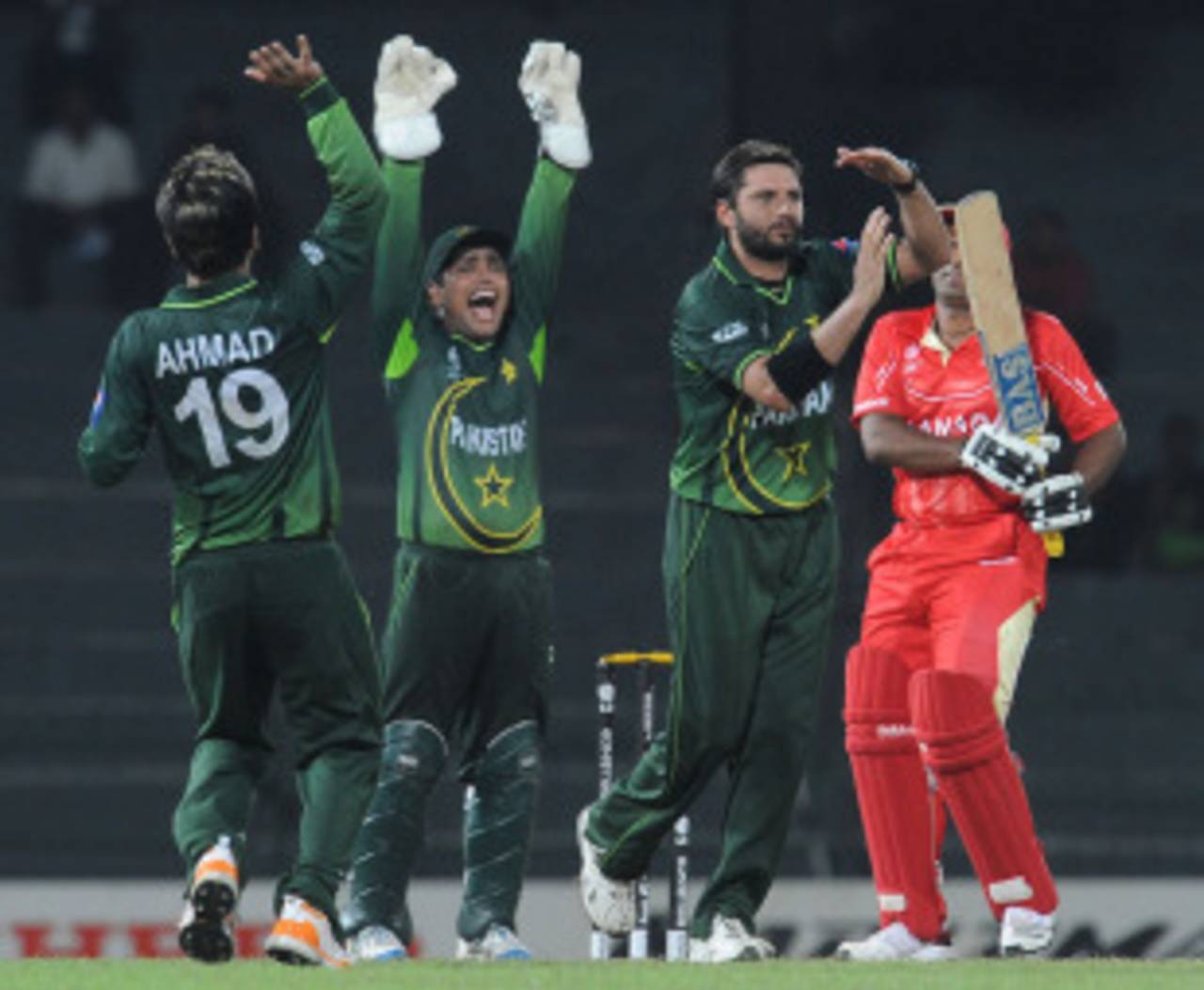Ashish Bagai, the Canada captain, was "boggled" by some of the decisions made by the DRS (Decision Review System) in his side's tense 43-run loss to Pakistan at the Premadasa on Thursday. Bagai experienced the best and worst of the system; reprieved once after being given out and sent back later after being given not out.
Those two calls were part of a total of five referrals in Canada's chase in which the on-field umpires' decisions were eventually reversed. Bagai was first given out leg-before to Umar Gul in the 8th over. He asked for a referral - prompted by signals from the dressing room to do so, which was spotted by Pakistani fielders - before replays showed the ball to be going comfortably over leg-stump. Later, he was given not out by Daryl Harper off Shahid Afridi on another leg-before shout, only for Pakistan to refer the decision and be awarded.
Three other decisions, against Ravindu Gunasekera and Zubin Surkari, also prompted decision-changing referrals, rounding off a bad day at the office for Harper and Nigel Llong. Bagai was asked about the decisions and indicated his displeasure with the system. "I'm not sure I can answer that before I speak with the umpires today," said Bagai. "There was a bit of controversy over the use of it. Some go your way, some don't. They've [ICC] kept a mantra of relying on technology blindly and that is their decision. We got a couple today that we were boggled with but that's what they've chosen, we can't do anything about that now."
Pakistan's own experiences with the DRS have been hit and miss. Against Sri Lanka last week, they wasted two reviews in the field on decisions that, to the naked eye, seemed not out, including one for an edge. But Afridi insisted there were benefits from its use. "I think it is good because one decision can change the match, a not out or an out," he said.
Perhaps flippantly, he added, "it should be there and I think the number of referrals allowed should be raised to four from two, because two are not proving enough."
In the wake of the Ian Bell incident in the Bangalore tie with India, much of the focus has been on one particular clause of the system,
the 2.5m rule. Earlier in the tournament, however, Mahela Jayawardene had raised the issue of the capacity of a DRS without Hot Spot technology. During his opening game century in Hambantota, against Canada incidentally, Jayawardene survived two appeals and fielding referrals for caught-behind decisions, when slo-mo cameras couldn't provide a definitive assessment.
The same concern was raised by Ricky Ponting ahead of Saturday's clash with Sri Lanka at the Premadasa, though Ponting did give broad support to technology. "I was a bit surprised at the start of the tournament when we found out we were using the DRS without Hot Spot, that was a bit of a shock to me because Hot Spot part of it is probably as big a part of the system as anything," Ponting said.
"At the end of the day, players always have to understand that it's not going to be perfect. But we're still going to be getting more correct decisions at the end of a game, which is obviously beneficial for the game. It's like it's been used in Test cricket, you can walk off at the end of the day and feel you've been aggrieved by a couple of decisions that have gone either for you or against you in that game, but as long as you're getting more correct decisions then it's got to be good for the game."
